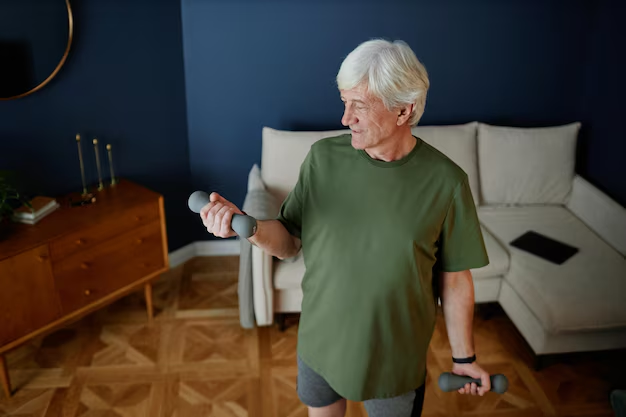Understanding the Connection: Can Parkinson's Disease Lead to Weight Loss?
Living with Parkinson's disease can present a myriad of challenges, and weight loss is a concern that garners considerable attention. For those touched by this neurodegenerative condition, understanding the potential causes and effects of weight loss is crucial. In this article, we'll explore whether Parkinson's disease can indeed cause weight loss, delving into various related aspects that offer context and practical insights.
The Nature of Parkinson's Disease
Parkinson's disease is a progressive neurological disorder primarily affecting movement, balance, and coordination. It's caused by the degeneration of nerve cells in the brain that produce dopamine, a neurotransmitter essential for regulating movement. While its hallmark symptoms include tremors, stiffness, and slowness of movement, Parkinson's can also impact various non-motor functions, potentially leading to issues such as cognitive decline, mood disorders, and yes, changes in weight.
Why Can Parkinson’s Disease Cause Weight Loss?
Metabolic Changes
One of the primary reasons Parkinson's disease could cause weight loss is due to metabolic changes. Research suggests that individuals with Parkinson's might experience a higher resting energy expenditure, meaning their bodies burn more calories even at rest. This can make it challenging to maintain body weight without adjusting dietary intake.
Gastrointestinal Challenges
Gastrointestinal issues are notably common in Parkinson’s patients. Symptoms like nausea, constipation, and a slowed digestive process can diminish appetite and lead to poor nutrient absorption. This can reduce caloric intake and contribute to weight loss.
Medication Side Effects
The medications used to manage Parkinson's symptoms, such as Levodopa, can have side effects like nausea and decreased appetite. These side effects can unintentionally contribute to weight loss if they lead to reduced food intake over time.
Psychological Factors
Depression and anxiety are frequent companions of Parkinson’s disease. Psychological stressors can lead to changes in eating habits, with some individuals experiencing reduced appetite or neglected meals, further fueling weight loss.
Motor Symptoms
The physical demands of living with Parkinson's cannot be understated. Motor symptoms such as tremors, muscle rigidity, and bradykinesia (slowness of movement) can make the act of eating and preparing meals challenging, leading to insufficient food consumption.
The Significance of Managing Weight in Parkinson's
Maintaining a healthy weight is paramount in managing the symptoms and enhancing the quality of life for someone with Parkinson’s. Weight loss, particularly when unintentional, can lead to muscle loss, decreased strength, and increased fatigue—all factors that can exacerbate the challenges posed by the disease.
Strategies to Manage Weight Loss in Parkinson’s
1. Nutritious Diet
Emphasizing a well-balanced, nutrient-dense diet is vital. Consuming a variety of foods—rich in fruits, vegetables, whole grains, and lean proteins—can help ensure adequate calorie and nutrient intake. Exploring meal plans tailored to Parkinson’s nutritional needs might offer added benefits.
2. Small, Frequent Meals
Eating smaller, more frequent meals instead of three large ones can help manage gastrointestinal symptoms and maintain energy levels. This approach might be easier to handle physically and aid in better digestion and absorption.
3. Safe Eating Practices
Given the motor impairments, using specialized utensils can assist those with Parkinson's in eating more independently. Swallowing difficulties may arise due to muscle control issues, so always ensure food is of an appropriate texture and consistency to prevent choking.
4. Mindful Eating
Addressing any potential emotional and psychological barriers toward eating is essential. Encouraging a comfortable and stress-free environment at mealtime can enhance appetite and overall enjoyment.
5. Engaging Supportive Healthcare
Keeping open communication with healthcare providers about changes in weight and eating habits is crucial. They can offer personalized strategies and may recommend consulting with a nutritionist or therapist to address dietary and psychological needs.
Beyond Weight: Navigating Life with Parkinson’s
Support Systems
Living with Parkinson’s requires holistic support, involving family, friends, caregivers, and professionals. Establishing a network that offers emotional and practical assistance can make a significant difference.
Exercise and Physical Therapy
Incorporating regular, Parkinson’s-appropriate exercise routines helps maintain mobility, balance, and muscle strength, which can indirectly support healthy weight maintenance. Physical therapy tailored to individual needs can further assist in maximizing daily function and well-being.
Staying Informed
Awareness and education are critical. Staying up to date with the latest Parkinson's research, treatment options, and management strategies can empower individuals and their caregivers to make informed decisions about health and lifestyle.
Final Reflections on Parkinson's and Weight Loss
While Parkinson's disease can indeed be associated with weight loss, understanding the multifaceted reasons and implementing strategies to manage it can significantly improve quality of life. It's about crafting a personal approach that considers physical, emotional, and nutritional needs. Navigating Parkinson's is undeniably challenging, but with support, knowledge, and an integrative approach to wellbeing, individuals can effectively manage aspects of the disease, including maintaining a healthy weight.
Summary of Key Points 📝:
- Metabolic Changes: Parkinson’s can increase resting energy expenditure.
- Gastrointestinal Issues: Can affect appetite and nutrient absorption.
- Medication Side Effects: Some medications decrease appetite.
- Motor Symptoms: Can make eating and meal preparation difficult.
- Maintain a Nutritious Diet: Prioritize balanced meals with diverse nutrients.
- Eat Small, Frequent Meals: Manage energy levels and alleviate GI symptoms.
- Use Specialized Utensils: Aid in overcoming motor challenges while eating.
- Foster Support Systems: Engage with family, caregivers, and professionals.
- Exercise Regularly: Helps maintain strength and functional mobility.
- Stay Educated: Awareness empowers better management of Parkinson’s.
With dedication and the right strategies, those living with Parkinson's can navigate their journey with greater confidence and comfort. 🌟

Related Articles
- Are There Environmental Causes Of Parkinsons
- Can Alcohol Cause Parkinson's
- Can Concussions Cause Parkinson's
- Can Females Get Parkinson Disease
- Can Head Trauma Cause Parkinson's
- Can Parkinson Disease Cause Dizziness
- Can Parkinson's Affect Eyesight
- Can Parkinson's Affect Memory
- Can Parkinson's Affect Speech
- Can Parkinson's Affect Vision
